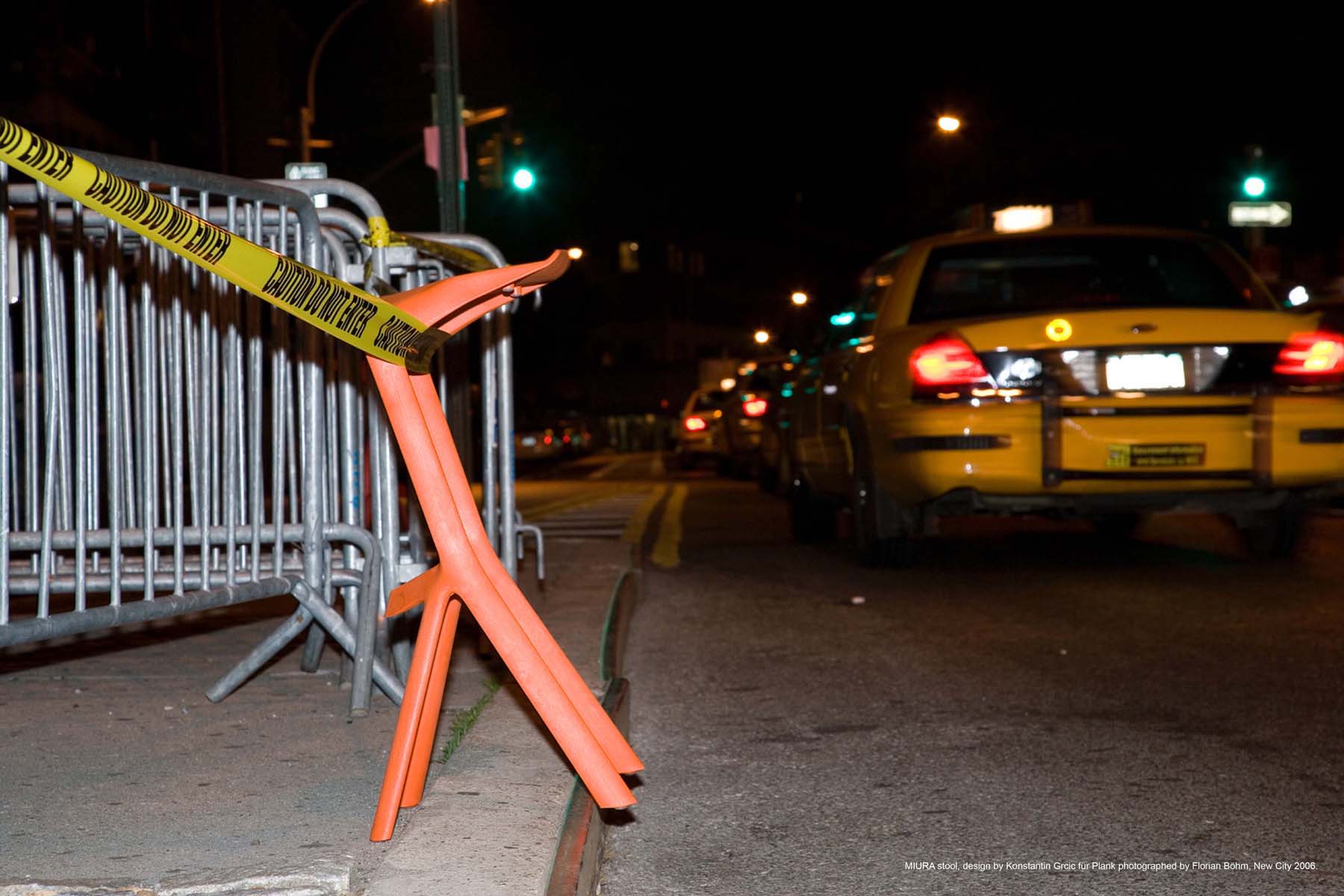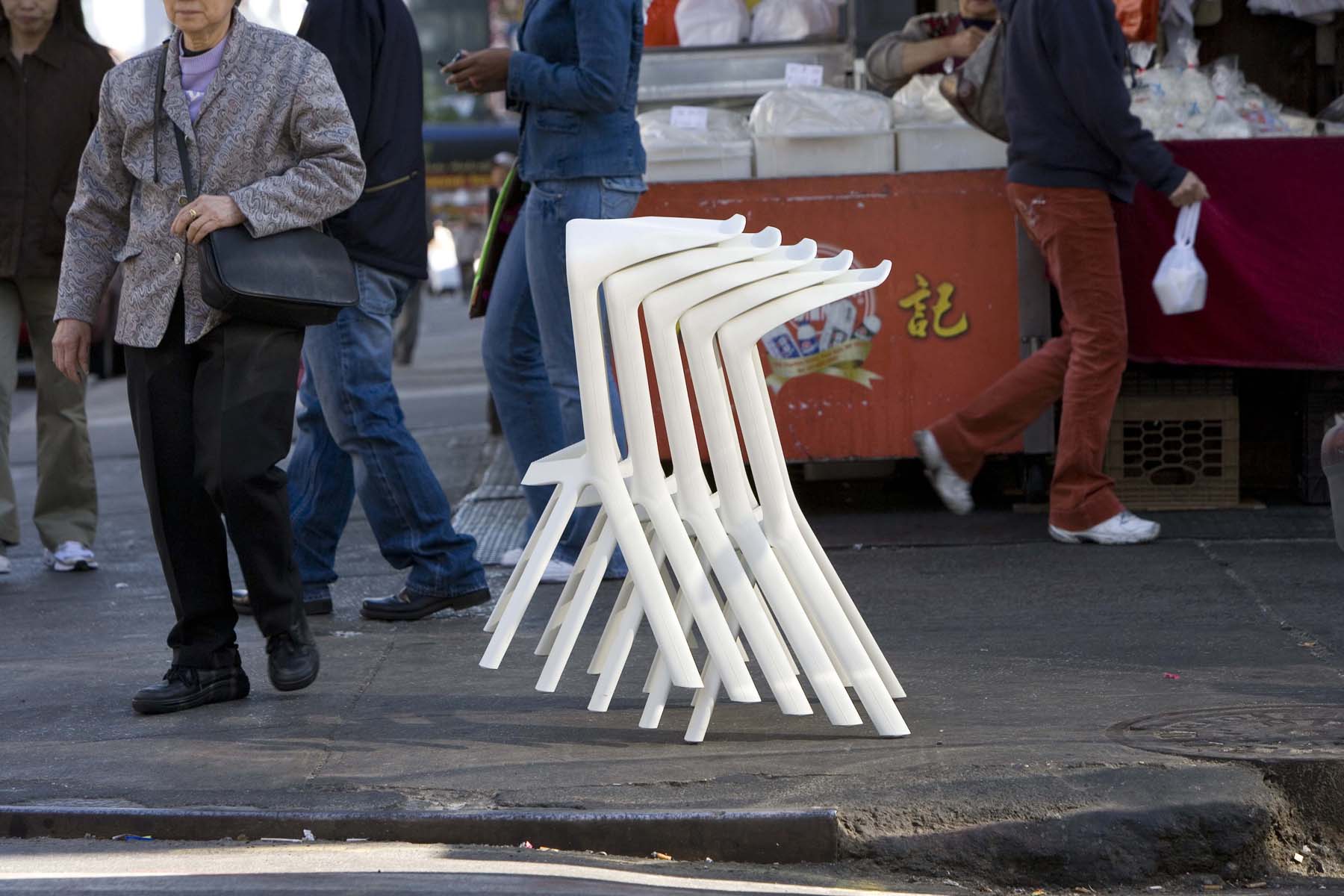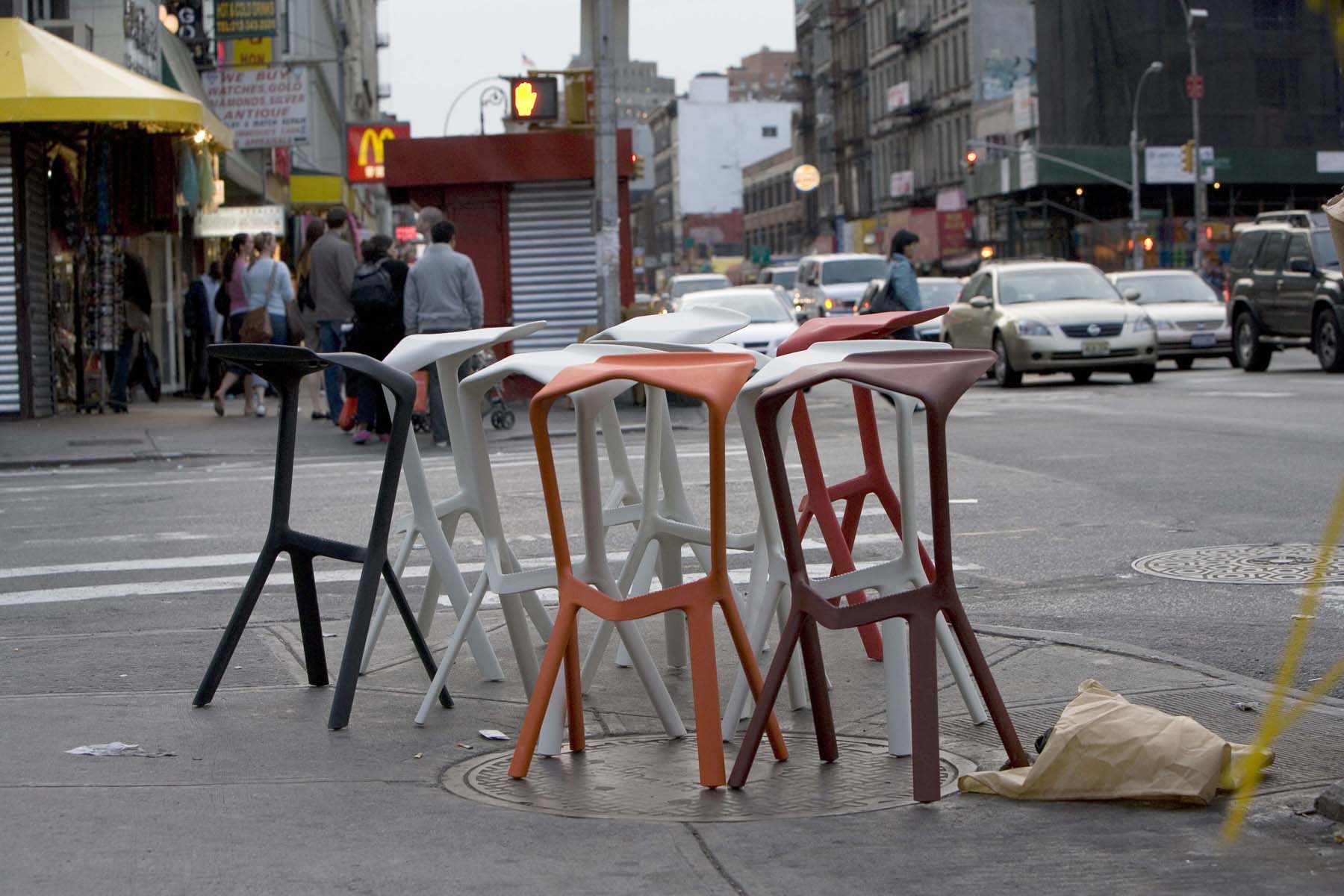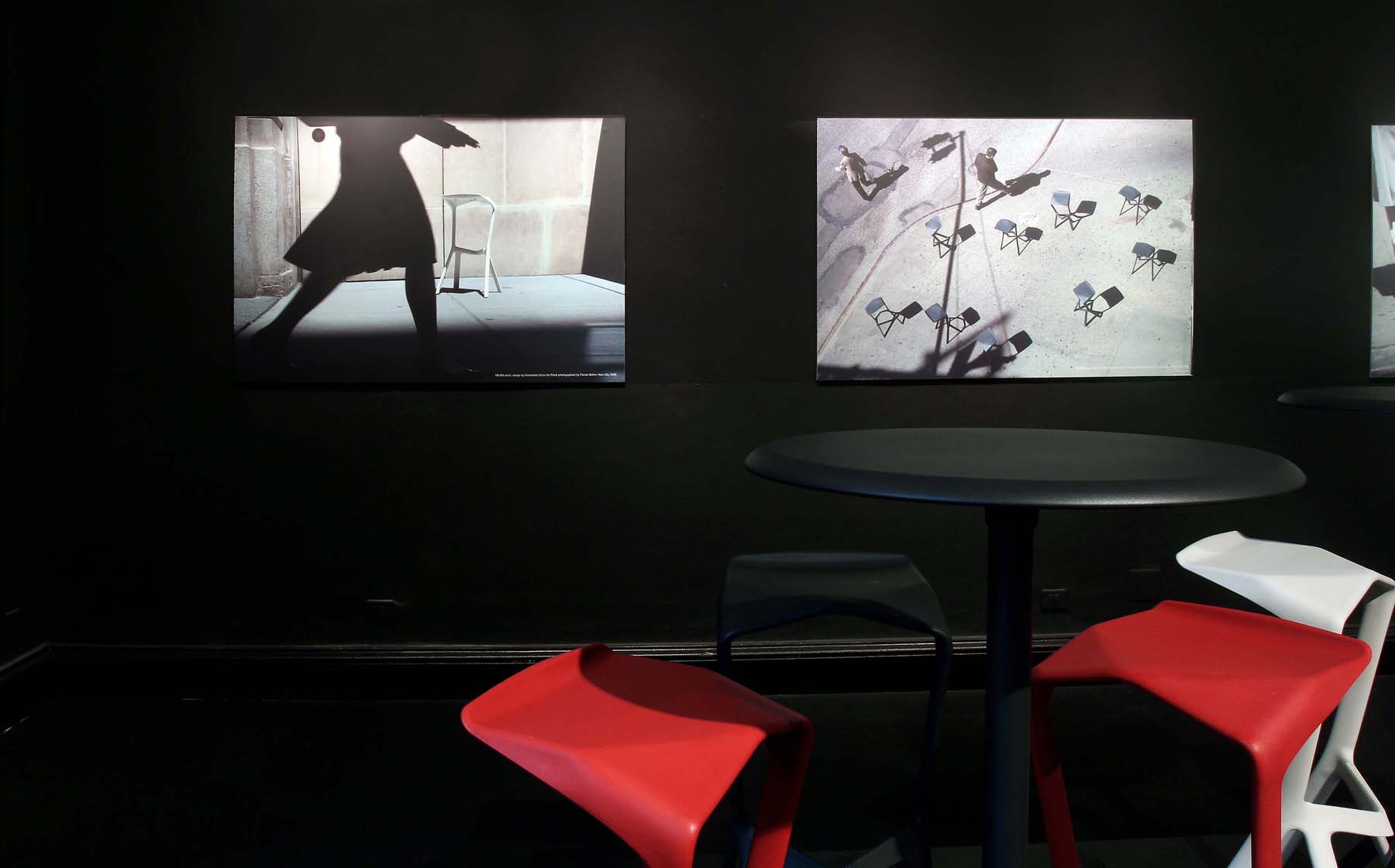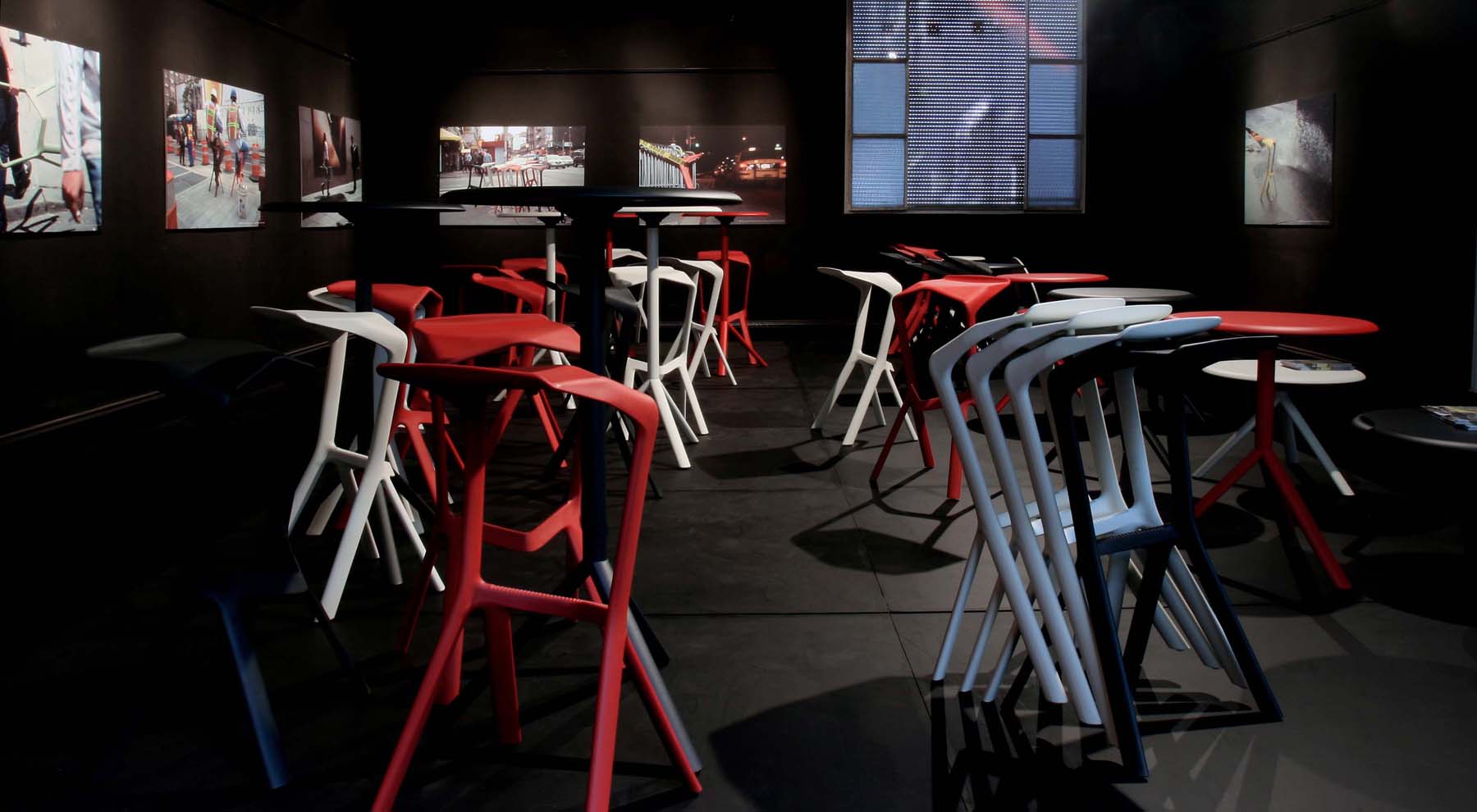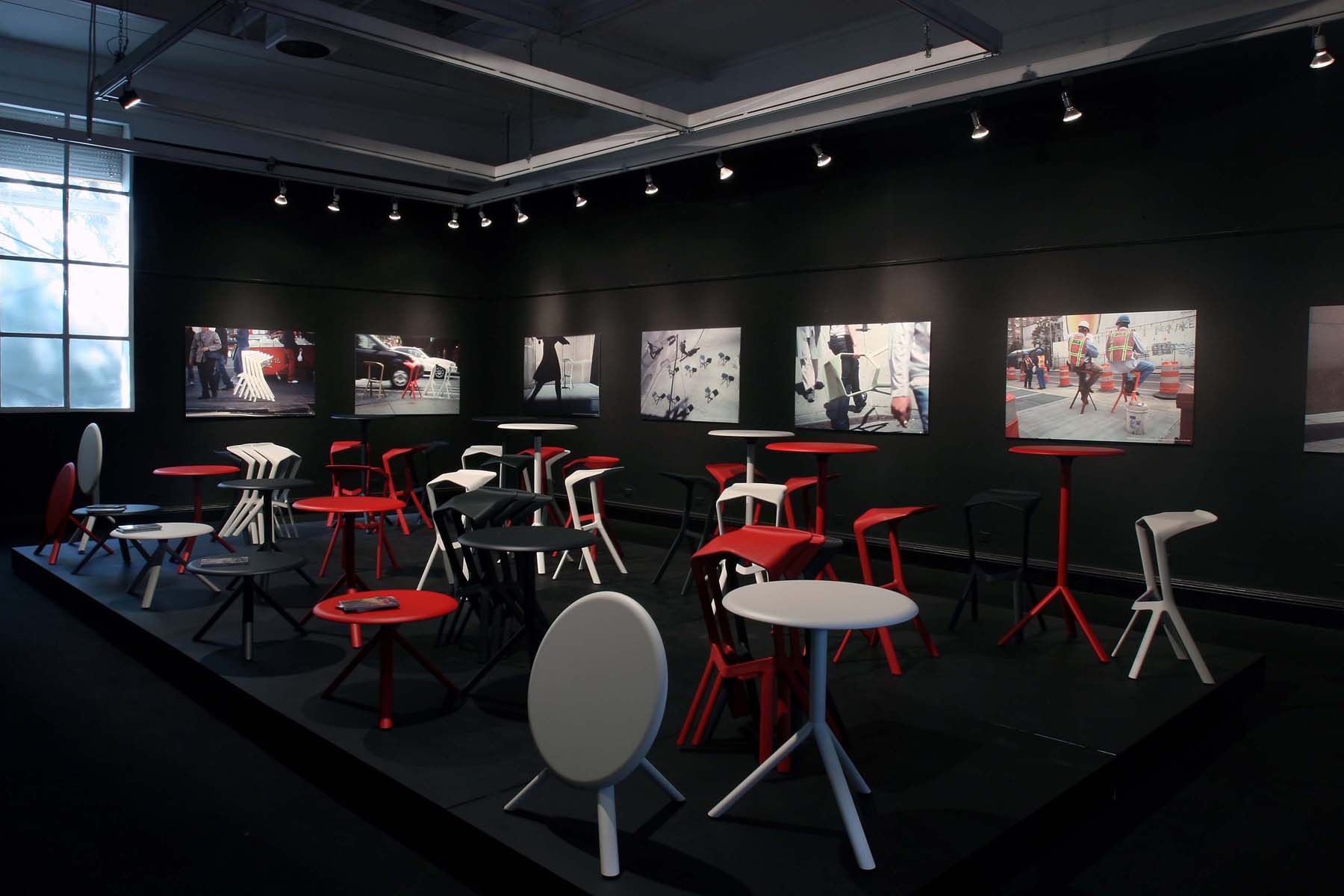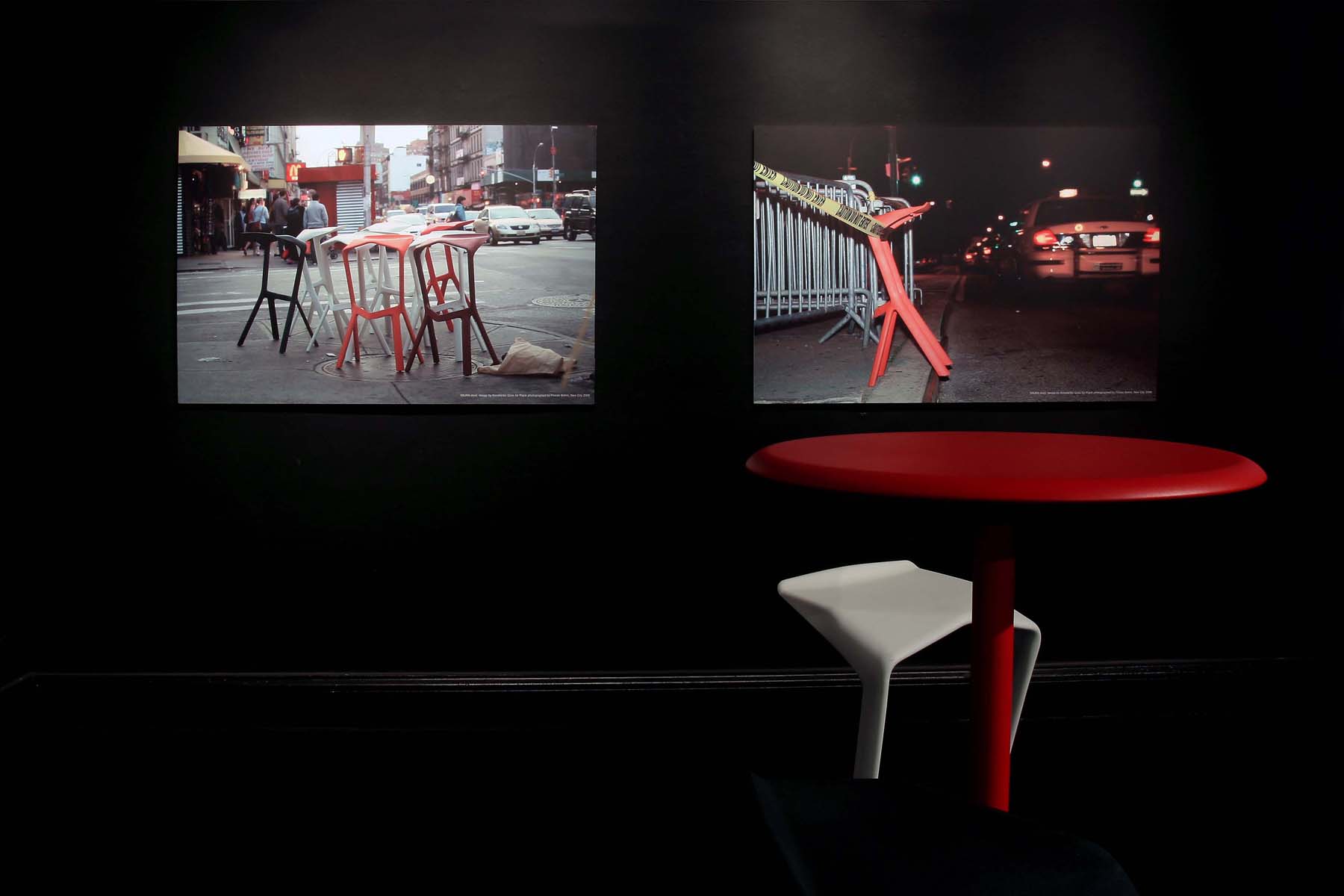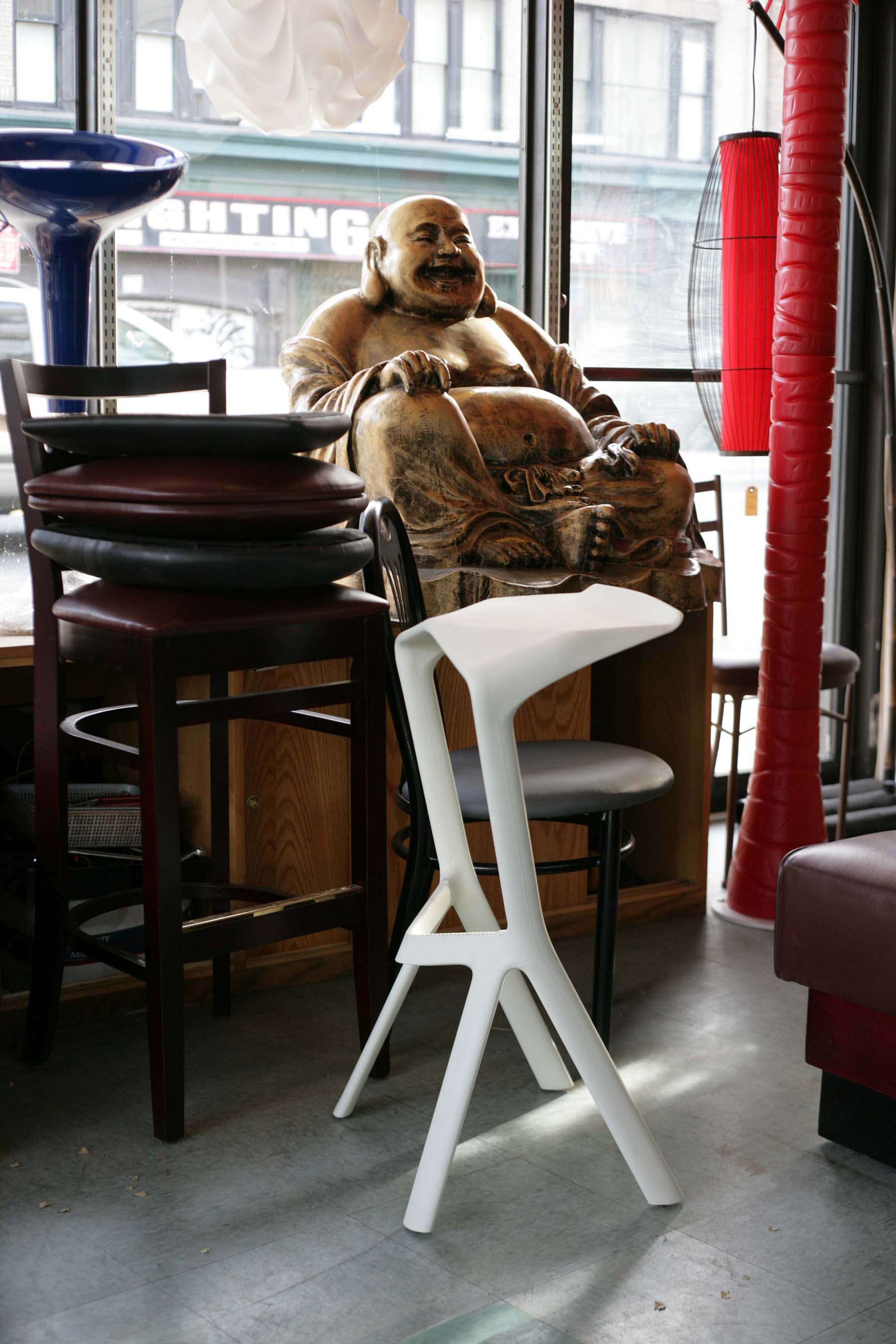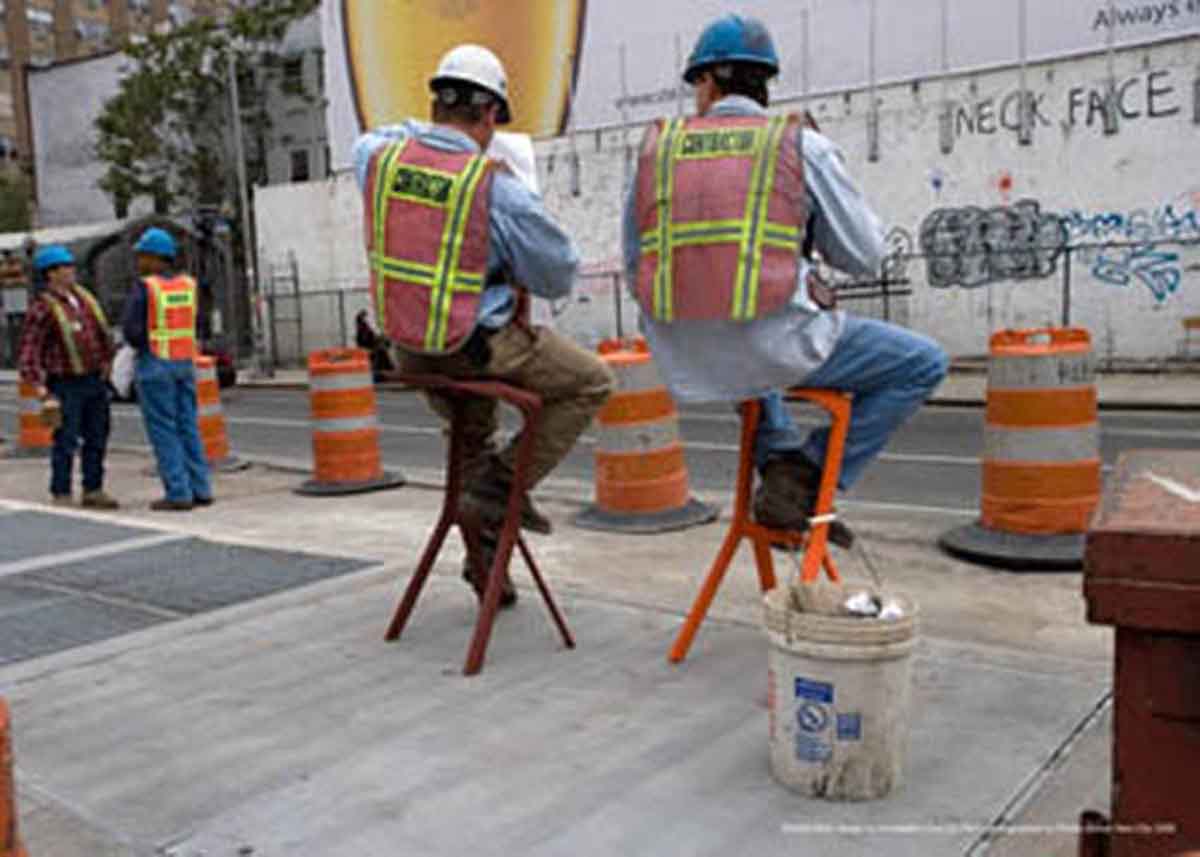
Miura stool NYC2006
Konstantin Grcic
18/07/07. (Sala 251)
Miura stool: The Miura stool is made of reinforced polypropylene (2,5 times stronger than aluminium) produced (injected) in one block. The innovative injecting technology as well as the requirement to develop a barstool for contract and domestic environments, has lead to the characteristic form of Miura. Optically this stool has a truly dynamic shape, of which construction and ergonomics are developing into a powerful and expressive harmony.
Konstantin Grcic
Konstantin Grcic was born in Munich, Germany in 1965. After training as a cabinet maker at Parnham College in England he studied Design at the Royal College of Art in London from 1988-1990.
Since setting up his own design practice Konstantin Grcic Industrial Design in Munich in 1991 he has developed furniture, products and lighting for some of Europe’s leading design companies such as Agape, Authentics, ClassiCon, Driade, Flos, Iittala, Krups, Lamy, Magis, Moormann, Moroso, Plank, Whirlpool. Konstantin Grcic creates industrial products widely described as pared down, simple, minimalist. What sets him apart from the minimalsm in fashionalble currency today is that he defines function in human terms, combining maximum formal strictness with considerable mental acuity and humor. Many of his products have received prestigious design awards. In Oktober 2000 Konstantin Grcic is nominated “Guest of Honour” at the Interieur Biennial in Kortrijk/Belgium presenting an extensive show of his work. The Mayday-lamp produced by Flos was selected into the permanent collection of the Museum of Modern Art in New York and won the Compasso D´Oro in 2001.
Currently Konstantin Grcic Industrial Design is working on the development of a new range of electrical kitchen appliances for KRUPS (part of Groupe SEB), stationary equipment for MUJI Japan as well as the development of new products to be launched at the forthcoming Salone del Mobile, Milan 2005. A comprehensive monography of the work of Konstantin Grcic Industrial Design is due to be published by Phaidon/London in April 2005.
Plank
Founded in 1893 by Karl Plank, the company has been handed down from father to son till today as is the tradition of the best Italian enterprises. Passed down first to Karl Jr. and then to his son Martin who since 1979 has been running it and, recently, is being helped by his son Michael, the company in this lapse of time has transformed itself from its artisan origins to an industrial enterprise. Today Plank´s production makes use of sophisticated automation systems whenever this will allow an optimal balance between costs and the quality of the product; nevertheless some aspects of the workmanship, where manual ability is indispensable, remain artisanal.
Design: The chairs produced by Plank are very different from one another. An ample range of articles for satisfying the demands of the market as much as possible, with particular attention, since Martin Plank has been in charge, to the design projects, to more meaningful products, more mindful of a harmonious combination of practicality and aesthetic value. Entirely or prevailingly made of wood, destined to different uses and spaces, they present themselves with the same essential quality, with a simplicity that is the essence of technological research correctly addressed to obtaining a formal and functional harmony and not just something theoretical.
Philosophiy: Plank offers a modern product, because it corresponds to the desire of immediateness that the world today needs and, at the same time, capable of collecting the suggestions and influences of its own time. This does not mean tying itself to the day to day fashions, but rather corresponding to the personal tastes of some, if possible of many, for as long a time as possible. The Plank products do not need to be placed in homogeneous surroundings; rather, their vocation is that of cohabitation, of exchange, of the idea of modernity – a research through everyday use and aesthetics.
Quality and Ecology: Situated close to the border, in the Alto Adige, the company has been able to make good use of the characteristics of the two countries it is close to, creating a cultural symbiosis that has enabled it to earn a solid reputation, capable of evolving and of living the present fully, without ever forsaking the high quality standards that have always been a trademark of its products. The artisan made object, durable in style and reliable in the workmanship, has by and by transformed itself into the industrial product of nowadays, capable of being offered to an international market, but as in the past, solid, reliable and confident also in its looks. On the other hand this capability of offering quality of the materials and of the workmanship, so typical of the attentive and refined work of an artisan, would not have been possible to maintain in an industrial type of production without the experience acquired over the years. The Plank company has always been close to the needs of efficient managing and was one of the first in Italy to receive the ISO 9001 quality and ISO 14001 environment certifications. In the year 2002 the company adapted to the new quality requirements and is nowadays in possession of an integrative management system according to ISO 9001:2000 and ISO 14001:1996. The innovative philosophy of their new system of responsibility towards the environment views this last and our natural resources as properties of the collectivity and affirms the social and economical importance of giving them full value and respect through a sensible management.
